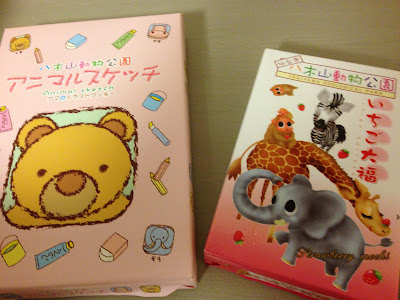So what the hell, let’s wax poetic on something sorta off
the wall today.
I had to give a short lesson (and by short, I mean 20
minutes…when really, that may sound like a lot, but I was breathless at the end
of it!) on the days of the week to a class of first year junior high students.
For the record, that means 7th grade. I sometimes
forget that because a lot of them are still so darn pweshuss! But I digress…
So over-achiever that I am, I did a wee bit of pre-emptive
research the night before the lesson because hey, the content was basically “review
the days of the week and ask students what classes they have on each.”
Normal functioning brain: Oh, that’s gobs to do and simple
enough for them.
My brain: RESEARCH ALL THE HISTORY!
I’m a tad special. Naturally, it was waaaay to over the
students’ heads and I realized that halfway through a Norse mythology webpage,
and I toned it down to singing about the days of the week and introducing types
of weather. But what I found was still interesting enough to share with the
Japanese teacher.
And now I’ll share it with you, because that’s what friends
do. We share everything from etymology to ABC gum. It just shows how much I
care!
Oh, you’re actually going to read this? Well okay. Onward!
Seriously? You give a crap? Wow. Remind me to bake you some
muffins when we next meet. It’s the least I can do. The very least.
Now those of you familiar with me and my strange hobbies
know I have somewhat of an interest in etymology or the origin of words. And
while I’m not as bad as “Gus” Portocolis from “My Big Fat Greek Wedding,” (that
“kimono” explanation cracks me up every time) I still get pretty thrilled by a
juicy discovery. This time, it’s the names of the days of the week. Let’s
review:
Monday
Tuesday
Wednesday
Thursday
Friday
Saturday
Sunday
(Make that a dozen muffins. And yes, we’re starting the week
on Monday because when in Rome…)
And speaking of Rome, the common names for the days of the
week have common ties in Roman, Norse and, wait for it, Japanese cultures! We’ll
start with the Norse because man, Norse gods kick ass! Odin, Thor, Frigg…actually,
back up. Let’s talk about the sun and the moon and why the heck they matter so
much.
Once upon a time when the earth was young and her breasts
were still rock hard and the geographic cellulite in the shape of the Andes,
Rockies and Appalachians hadn’t quite set in, mankind worshipped what they knew
and could depend on: namely, other fine, sexy and (relatively) young celestial
bodies. The sun and the moon were a constant presence…except during a new moon
when the world was probably going to end or a solar eclipse when HOLY CRAP THE
WORLD IS DEFINITELY ENDING, QUICK BURN SOMETHING AND OFFER IT TO THE BIG BALL
OF FIRE! The sun provided light and warmth and helped crops grow and it’s
position along with the changing patterns of the moon and stars helped mankind
develop early calendars…including a way to measure a week.
But what determined the length of a week? What else but what
you already have at your disposal: the things you worship.
The earth
The sun
The moon
Various deities.
May I just point out that it’s a damned good thing the days
of the week were named before the internet? Can you imagine? Grumpy Catday.
Herp Derpday. Gifday. Trollday……kill me.
Up to bat, we have Saturday.
Wait, hold on. Saturday? What you smoking, Redhii? Calm your
tits, I’m getting there.
Originally, Saturday was the first day of the week. The
Norse people called this day after what can only be assumed was the traditional
past time: Laugardagr or “washing day.” Granted, there is no similarity between
this and anything the Romans came up with, but you gotta hand it to the Norse.
There was no question about where their priorities lay. You gotta get the blood
of your vanquished foes out of your tunic sometime. The Romans probably had one
listen to that and decided that the Anglo-Saxons had a better name for it, Sæternesdæg,
which was convenient because it was similar to their god, Saturn, incidentally
the god of farmers and agriculture.
Oh, hi Japan. How do you say “Saturday” in Japanese?
Doyoobi? And what does “do” mean? Dirt, earth, soil? Well whaddya know…
Anyway, eventually as time progressed and worshipping that
big angry bastard in the sky (the sun!) became more popular, the first day of the
week moved to Sunday. Self-explantatory.
In Japan, Nichiyoobi. Nichi = sun…in this context anyway.
Monday is another pretty easy one across the board. The
Norse called it mánadagr and the Romans adopted the name after some translation
from “dies lunae” or “moon’s day.” Pretty much every culture decided the big
pretty orb in the sky deserved her own day, including the Japanese. “Getsu”
means “moon!”
Here’s where it starts getting pretty interesting. In Japan,
the next four weekdays are named for the elements: fire (ki), water (sui), wood/tree
(moku) and metal/gold (kin).
Tuesday gets its name from the Norse god, Tyr, the
one-handed bad-ass of single combat (no, that’s not a joke! Look it up!) who is
the equivalent of the Roman god “Martis” or Mars, the god of war, whose element
is…fire!
Wednesday. There’s some Japanese grammar involved here. Just
think of the muffins. Now, the Romans named this day for Mercury, another god of
combat, and similar to the Spanish name for the day, “Miercoles.” But the god
Mercury came after the Norse and Anglo-Saxon gods Wodin and Odin (or óðin if
you want to be specific). Note the “w” and the “o.” Same god. Different
spelling. Similarly, the word “wo” in Japanese is often spelled with the “w”
but more often used and pronounced as “o.” Now this may be a stretch, but the
name for the element “mercury” comes from “silver water.” I’ll leave it at that.
Wednesday: (W)odin: Mercury: Silver water.
Thursday should be no surprise to anyone who has seen that
abomination of a movie. Yes, dear, they name a day after you. Woot. Go be
pretty somewhere else. Now, the Old English word for this day was “Þunor” which
is a personified name of and for “thunder.” The Norse had another name for it:
Thor, the god of… you guessed it, thunder. And this correlates to the Roman
god, Jupiter, the dude hurling lightning bolts around up there. And one of his
primary symbols? The oak tree.
Finally, Friday. Thems gonna be some tasty muffins. “Kin” in
Japan means a few things, but “kinyoobi” means “gold day.” Maybe they were
making a joke about it being the last day of the working week. Or maybe it’s
something else. The Norse and their stars and planets, man. They named this day
for what they called “Frigg’s star,” and what we call “Venus.” The name “frigg”
means “beloved” or “mother” or “love” depending on who you talk to. And who was
Venus to the Romans? Very good. The goddess/planet of love, beauty and mothers
and symbolized by many beautiful gems and metals including…gold.
…So, there you go. It took some doing and a little neck
craning and eye squinting but a little lesson in weekday etymology. How do you
like me now?
Probably a lot less than if I was making you those muffins.
Bad news folks, you may have to run on Dunkin’ Donuts for the time being. I
hear they’re making gluten-free stuff now. Well played, Fast Food, well played. As a reward, friends, here's some cute stuff in Japan.
 |
| Contain(ed) cookies |
 |
| Aisukuriimu |
 |
| Kumamon is WATCHING you |


No comments:
Post a Comment